What do you see when you gaze around your place? **Family photos** might create a cozy vibe, like a warm hug in a frame. Perhaps you’re a plant lover and turn your space into a jungle with your favorite plants. Or maybe, you’ve chosen a **signature scent** for your home. A familiar aroma from a candle or oil diffuser can feel like coming home to a hug.
We often put a ton of time and effort into making our living spaces our own—because it’s important to do so. In fact, it’s a very human thing to do. Susan Clayton, an environmental psychologist at the College of Wooster, explains that a person’s home is the very essence of their self-identity—an extension of themselves. This is why we spend time decorating and styling our surroundings to suit our individual tastes.
The psychology of home is a complex and amazing topic that we’re exploring here at Fracture. Keep reading to learn more about why your home environment means so much.
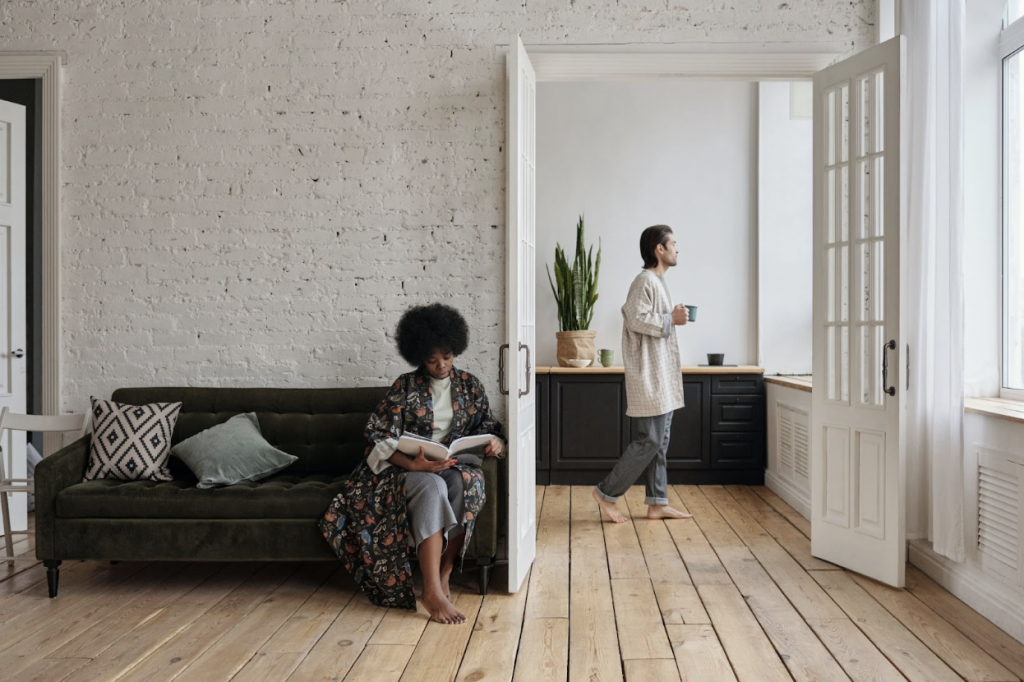
Decor’s effect on your subconscious mind
Typically, when home decor is discussed in the media, the aesthetic aspects are highly emphasized: What’s currently trending, how to achieve a particular look, how to adapt certain decor styles, and more. But this is just a small part of the bigger picture.
When it comes to the psychology of home, something not often talked about is your home decor’s effect on your subconscious. Essentially, the design elements you use in your home have a notable impact on your emotions and perceptions. For example, the color of your bedroom walls may contribute to troubled sleep or anxiety. Moreover, lack of personal touches like pet photos or artwork may give your home a cold, standoffish feel.
Need-to-know #1: In the early 19th century, Johann Wolfgang von Goethe published his book, “Theory of Colours.” As a result, experts in the design space today follow basic tenants of modern color psychology. One study by Travelodge found that people with blue walls in their bedrooms reported the best night’s sleep compared to any other color.
Need-to-know #2: Semir Zeki, a neurobiologist at the University College London, conducted a series of brain-mapping experiments in 2011. The study found that looking at art can “trigger a surge of the feel-good chemical, dopamine, into the orbito-frontal cortex of the brain, resulting in feelings of intense pleasure.”
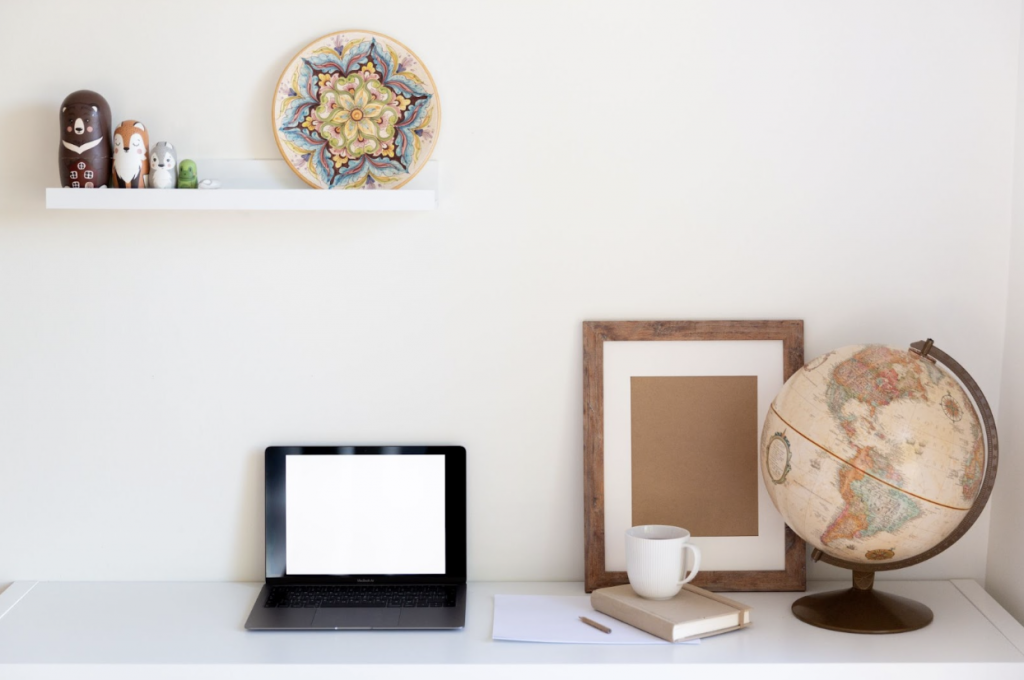
Your design choices show your personality
Often, the most exciting part of having your own space is deciding how to fill it. In his book, “The System of Objects,” sociologist Jean Baudrillard explains that every object someone chooses to fill a space helps to inform its function. And beyond that, the specific combination of those items reflects an expression of a person’s personality and passions. Baudrillard also suggests that when we have guests over, they instinctively evaluate our homes on four distinct criteria:
- Function: Will this item fit your needs? Is the kitchen table big enough to seat your whole family?
- Exchange: Is this item worth the price?
- Symbolic: Does this item have an emotional attachment?
- Sign: Does this item have a particular or status symbol? Is it name brand or generic?
Using these psychology of home criteria, you can style your home in a way that’s comfortable for you and gives off the impression you want.
Example #1: A person who chooses a small, designer couch over a larger, generic brand one that has plenty of room to stretch out with the family may be seen as concerned with appearance and social status.
Example #2: A refrigerator door covered in kids’ artwork and family photos may be seen as more warm and welcoming than a minimalist kitchen.
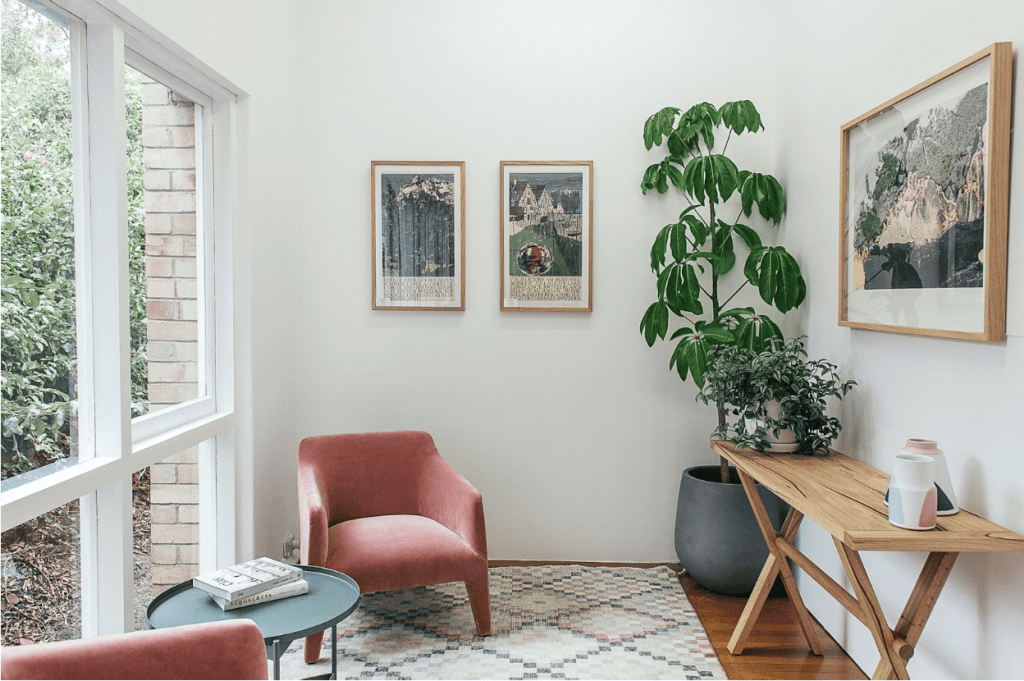
Channeling positive energy with feng shui
If your goal is to channel more positive energy into your life, taking stock of your interior design is a great place to start. While seemingly underrated, we now know that there is a strong link between our home environment and our feelings of calm, focus, and inspiration. Here’s where we can turn to the ancient Chinese art of feng shui, a longstanding staple of the psychology of home. While true adherence to feng shui involves hiring a professional to analyze your space, you can certainly do it yourself.
According to the Feng Shui Society, we respond strongly to:
- Natural light
- Views
- Colors
- plants
- Images
- Materials (such as flooring)
The Feng Shui Society explains that “our response to the atmosphere of each room may influence our mood, thinking, energy levels, and more. The aim of feng shui is to create a home where each room has the ideal characteristics to succeed in whatever we want to do there.”
Here are a few feng shui principles to get you started:
- Declutter and brighten up your entryway. As the front door is referred to as the “mouth of qi,” your entry represents how energy enters your home and your life.
- Clean your windows. Clean windows help you see the world with color, clarity, and precision.
- Check your commanding positions. This describes important pieces of furniture: the bed (representing you), the desk (representing your career), and the stove (representing your wealth). For optimized commanding positions, you should be able to see the door when using these items.
- Plants—the more , the merrier. Plants embody life energy, so incorporating more greenery will add freshness and vitality to your home. For a deep dive into which plants to use, click here.
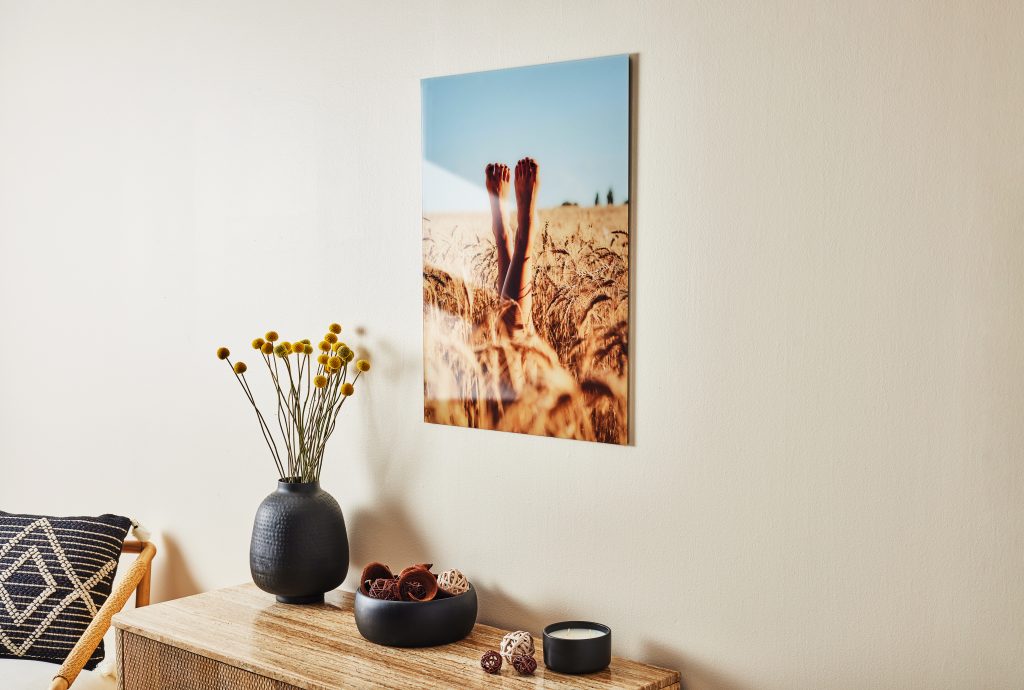
Like our individual personalities, every home is unique. Use our roundup on the psychology of home to make your space your very own safe haven. If you want to personalize your home and bring it to life, consider decorating with glass prints.
Fracture print your photos and favorite art directly onto glass for a sleek, modern statement piece. With a selection of sizes and shapes, you can create custom layouts—available in single glass prints, a Photo Wall arrangement, or Storyboard—to print your art on glass and display it in a style that’s uniquely yours. In addition, you’ll receive all of the materials you need to hang it on your walls, with options for tabletop display stands.
Let a Fracture print be the thing to add a touch of personality to your home. Get started now!
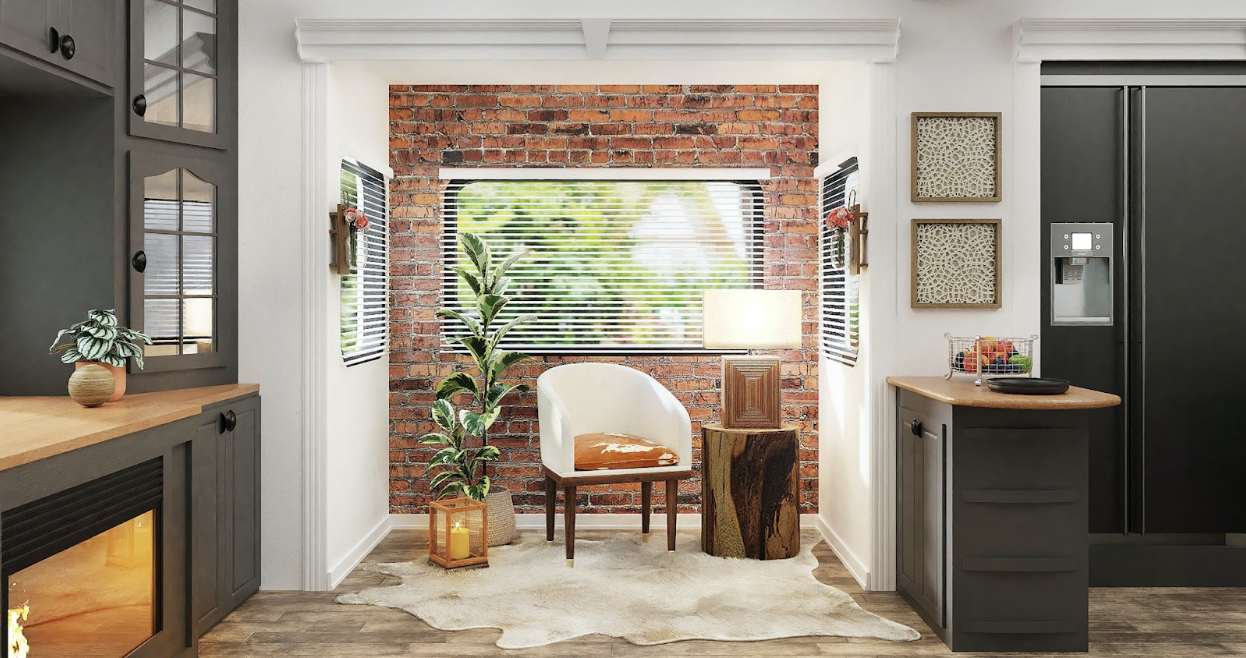

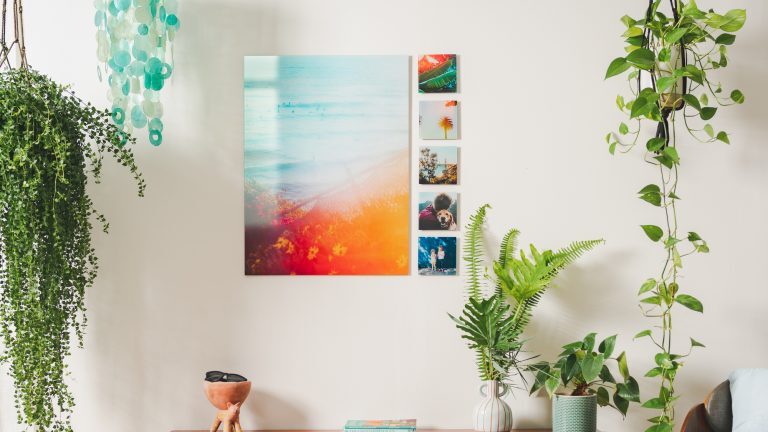
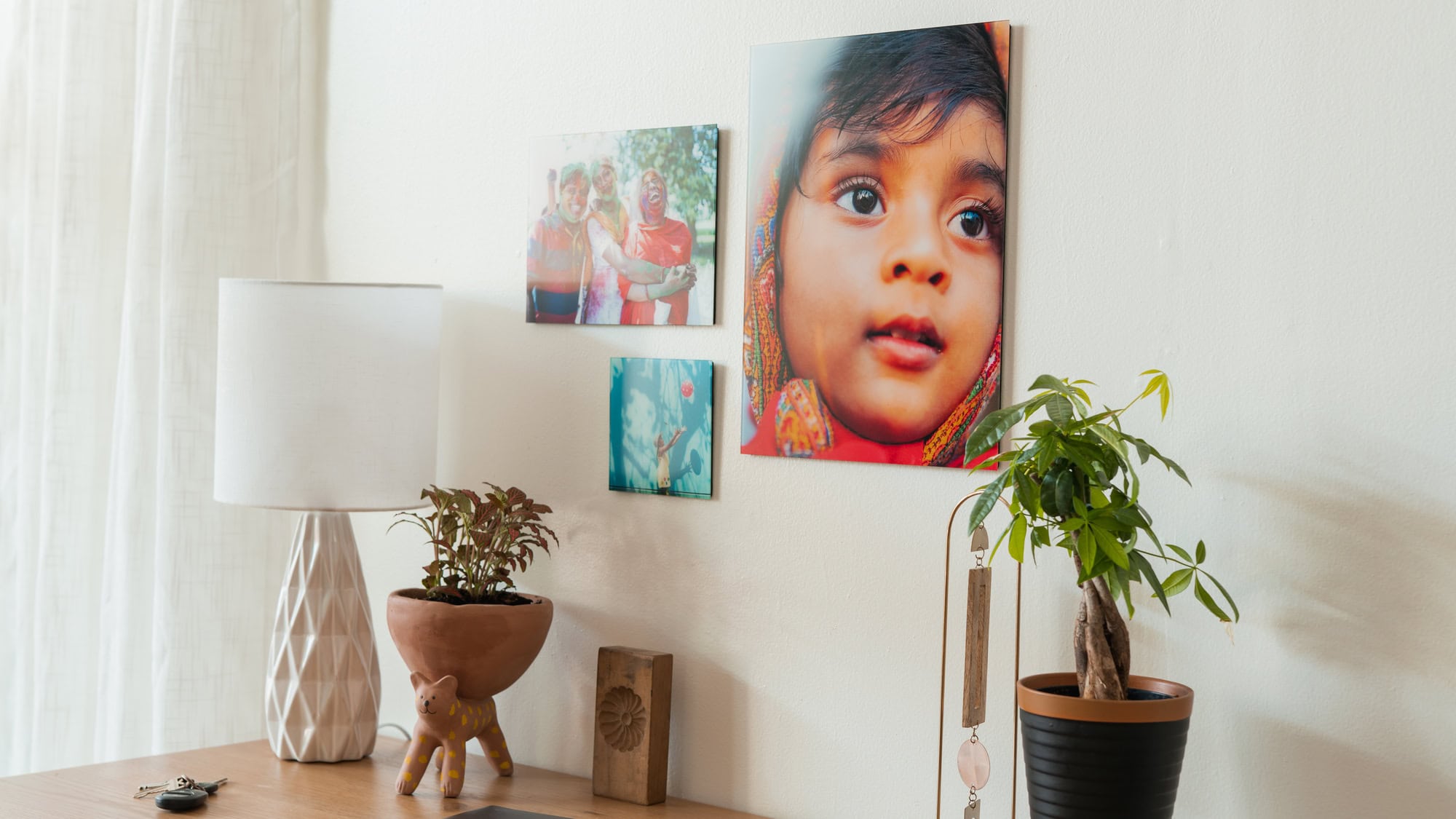

Comments